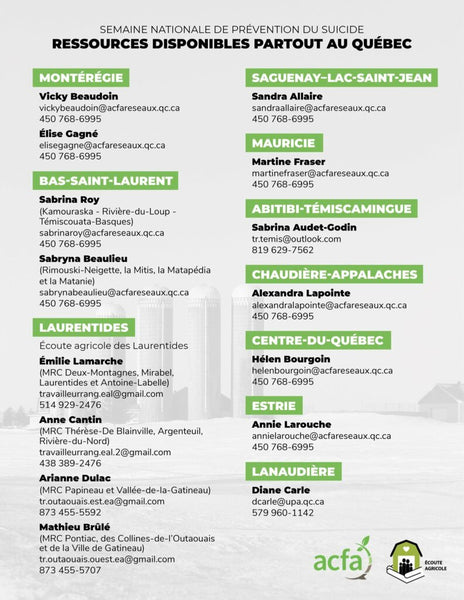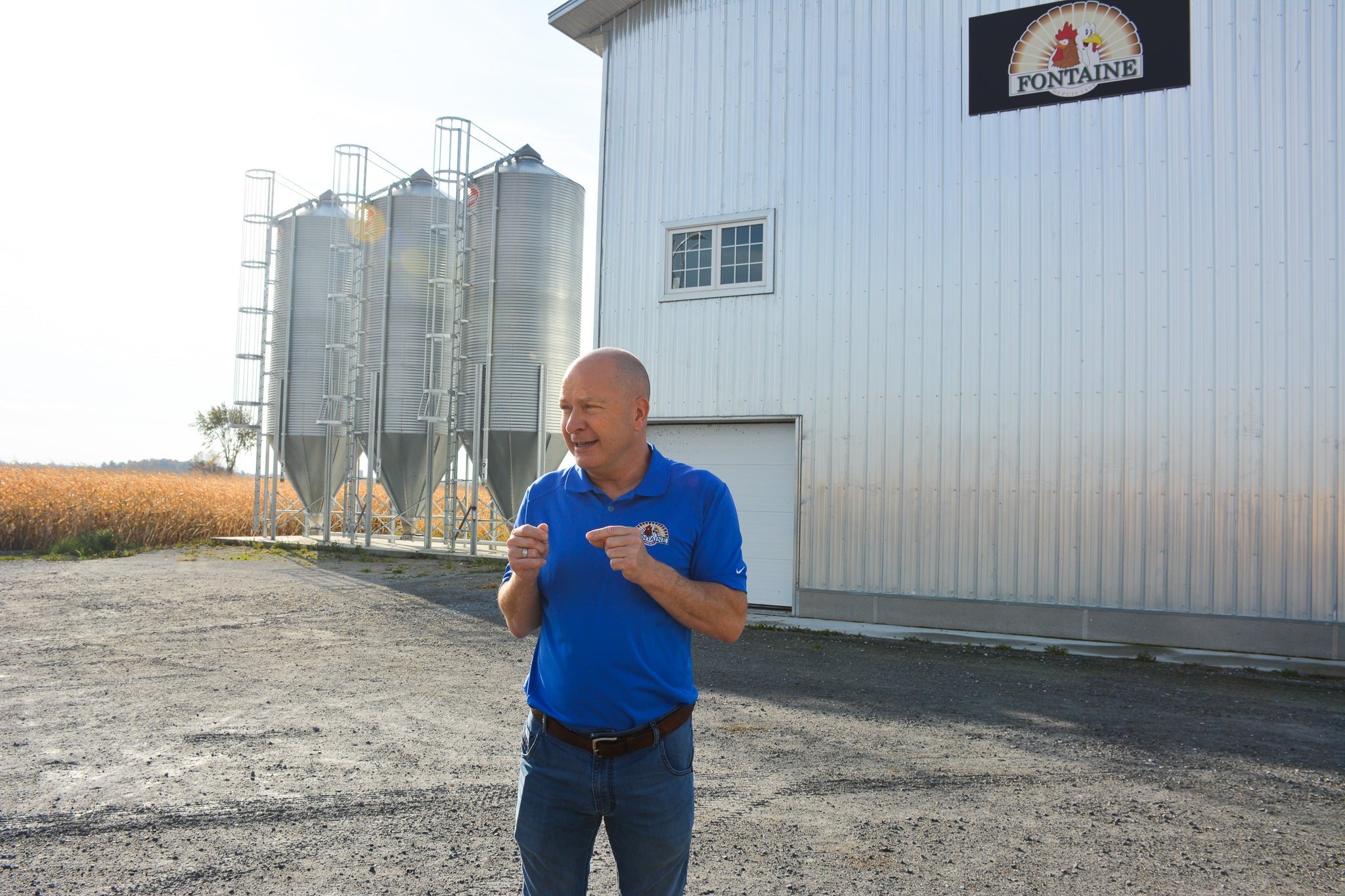Let's face it, and let's repeat it: the pandemic has forced us to rethink our priorities, certainly, but above all, it is taking a heavy toll on our mental health.
Yet, our producers have been experiencing psychological distress since well before the arrival of the infamous virus. And although it's still sometimes a taboo subject, its effects are very real. Consider this: the suicide rate is twice as high among agricultural producers as in the general population. We're talking about almost 51% of farmers living with a high level of psychological distress in Quebec. These are more than worrying figures.
Interview with Martine Fraser , Mauricie field worker for the organization At the heart of agricultural families (ACFA) .

What does a rank worker consist of?
It's a support resource, specializing in agricultural matters. We're truly here to equip farmers, no matter the issue they're facing. The agricultural sector is so complex that it's multi-issue: there's stress related to work overload, finances, weather conditions, conflicts with the next generation or with family, or even issues of violence. The spectrum we cover is very broad.
So you're like a social worker actually?
My job is to be on the front lines, proactively and preventively. I'm trained in communication and violence issues, but if the problems fall outside my area of expertise, I'll seek out professionals to refer to in order to better support the person.
Do you cover all of Quebec?
We currently cover 10 regions. But if necessary, we divide up the work. Let's say a producer doesn't have a regular worker in their region; they won't be left in the lurch.
What is the process? Who contacts whom?
We rely heavily on referrals. Sometimes, a concerned neighbor calls to alert us and let us intervene. There's a real sense of solidarity among producers. Otherwise, veterinarians refer us, or people from MAPAQ, for example. Everyone is our eyes and ears.
Other times, it's the producers who call for themselves. That's encouraging, because these are people who generally have trouble seeking help. Only a third of producers call for themselves, which is very low.
What are the predominant issues?
The most common psychological distresses are work overload and financial hardship. Producers work extremely hard for a financial insecurity that simply doesn't make sense. With the climate disruptions of recent years, there's a lot of money sitting idle in the fields, and the government isn't reimbursing 100% of these losses. The risks are enormous, and farmers are shouldering them all alone.
“It makes no sense that those who get up every morning to feed humanity live with such levels of stress and isolation.”
But during the pandemic, has the surge in local shopping made a difference?
During the pandemic, I heard a lot about "public recognition." I feel like the enthusiasm for buying local has waned. Many people were forced to throw away milk at the beginning of the pandemic, or euthanize pigs. That's what's difficult in the current context for our producers. They have to juggle a whole bunch of factors, over which they have very little control, hoping that "it will be okay."
What is the “added value” of the rank-and-file worker?
What makes all the difference is that generally the field workers are people who have been immersed in the agricultural environment. This ensures credibility, it inspires confidence in producers. The beauty of this job is that we adapt to them! With the pandemic, it's more complicated, but in general, we could walk around the farms, help the producer in the fields, calve their cow, or even make the train. We take the time we're given, even if the producer is at work. Our approach is very flexible, which is also what creates the strength of the network. When we understand the reality of the profession and have experienced the same things, people have more confidence to open up, and then we can develop a bond and really help.
Do you think mental health among our farmers is still a taboo subject?
I think there's a certain awareness being raised through our travels. People know we exist. Then, collectively, we're placing more and more emphasis on the importance of speaking out, of naming things when things aren't going well. Taboos are slowly breaking down, and we feel it.
A message you would like to convey?
I really want people to know they can count on us being there, and to never hesitate. No matter where you are in Quebec, there's someone there for you somewhere. We do prevention in our barns, we do it in our fields, why not do it with our health?
If you are experiencing distress or stress, or if someone you know is going through a difficult time, don't wait to seek help. The ACFA responds to all requests throughout Quebec, free of charge and confidentially. Contact 450 768-6995.







